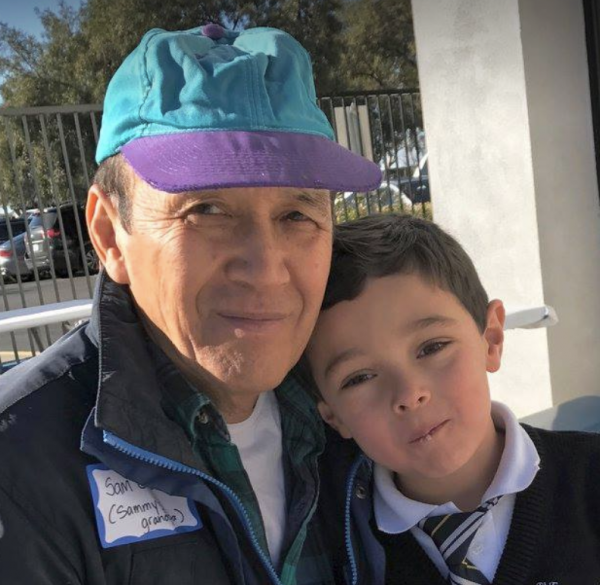Lest We Forget
“Love is so short; forgetting is so long.”
~Pablo Neruda, Chilean poet (1904-1973), Nobel laureate (1971) in literature
“… before they call, I will answer; and while they are yet speaking, I will hear.”
~Isaiah 65:24
I take a number of pills daily. These include a multivitamin formulation, chewable megavitamin C, vitamin D, L-lysine, and alpha lipoic acid. I won’t enumerate the reasons I take these. Suffice it to say some may be marginally efficacious. It probably does no great harm if I miss a dose at times.
I find it easiest if I take them in the morn. However, my routine also includes breakfast, which is not particularly elaborate or time-consuming in its preparation.
And I sometimes read a morning newspaper. Or dash off to join fellow players on a local tennis court. Or check my computer, which I either have to boot or wake from sleeping mode. And turn on the mouse, which is cordless. I’ve turned it off in an attempt to prolong life of its AA batteries. I know I’ll have to recharge them at some point in the future.
I often do the above to the soothing strains from a classical music FM station. We have only one that serves this geographic area. While I’m grateful for it, I sometimes think it simplifies life not to have more than one station to choose from.
I try to check with regularity the iPad, to which I listen on occasion as an alternative to the radio station. It periodically needs recharging.
Pill ingestion thus occupies a low spot on the pecking order of things to do. Though unintended, it’s often on the back burner of my figurative stove which often has all four burners ignited.
So, about to exit the house, often in haste, I try to remember I’ve not taken all my pills by placing a small paper cup on the counter of the sink, which I hope I’ll see later upon my return, when I am not so rushed, and recall why the cup is there.
On occasion I don’t notice the cup until late in the day.
When I was in postgraduate training at a prestigious Western medical center, one of my mentors was an affable, lean professor with short-cropped head hair, rimless eyeglasses and long necktie. This necktie was secured to underlying dress shirt by a tie clasp.
I don’t recall what the tie clasp looked like. What I do recall is that the clasp held several handwritten notes on small pieces of paper written by its wearer to remind himself of various tasks.
Some might have found this practice odd. I thought it rather charming—and definitely practical.
For who among us has not forgotten something, whether it be an item from the grocery store, the reason we opened the refrigerator, or something more important? Forgetting seems to be part of the human condition. As we age, it becomes more pronounced and more easily accomplished.
And that doesn’t even include forms of dementia, such as Alzheimer’s disease.
A sister-in-law often misplaced her purse. I understand this, and actually wonder why it doesn’t happen more often, given the number of purses the average woman possesses. Not burdened by the need or desire to accessorize, I have but one container: a black cloth fanny pack, which I consider a masculine version of a woman’s purse, and have misplaced it more times than I care to admit.
Many of you can relate to misplacing your cellular phone. I’ve done it a number of times. I sometimes think the person who can invent something that will prevent a cellphone user from losing his/her phone will become (deservedly) affluent. So far that invention seems elusive.
Two women, both seniors, were accustomed to meeting at a certain park on a regular basis to visit. They had done this for years. One day, when the two got together, one turned to the other and said, “You know, I’m so embarrassed. We’ve been good friends for years and, suddenly, I cannot remember your name.”
Visibly flustered, she clutched a small, balled-up handkerchief and looked as if she might be about to cry. She hesitated, then continued, “Do you mind telling me your name?”
The other reached out, patted her hand, paused a moment, then replied, “How soon do you need to know?”
Not long ago, a sister who lives in a senior facility and developed apparent presbycusis (deafness associated with aging) a few years ago, misplaced her hearing aids. The saga of those hearing aids would make for a separate essay. Suffice it to say she has expended considerable effort and some expense in acquiring them.
One evening, before a bath, she removed her hearing aids, and set them on the bathroom counter. The room became steamy. She wrapped the tiny aids in Kleenex and placed them in a Styrofoam cup, thinking they’d be safe there.
But they were not. Absent mindedly, she discarded the cup when she did laundry in the designated laundry room.
Later, when the need for the aids arose, in trying to recall where they were (where did I put them?), she sent up a silent supplication, then recalled that the cups had been likely picked up by the maintenance man from the laundry room. She rushed to the front desk of the facility and was told where the trash had been taken.
Now frantic, she met the maintenance man in an elevator with a trolley loaded with large white trash bags. Trembling (perhaps like the brothers of Joseph when they were accused of stealing money for the grain they had journeyed to Egypt to procure, so great was the famine in their land), she opened a bag. At the bottom she spied the white cup.
Fetching it with eagerness, she found the hearing aids still wrapped in facial tissue. This was an occasion for rejoicing. It was not the only time she’d misplaced her hearing aids; each time she had found them.
With gratitude and praise to the Almighty, she retrieved them and returned to her room, determined to be more careful in the future, but knowing such an occasion might repeat.
Just as man was born to die, so he seems destined to, with time, forget. But the One who formed us from dust (to which we shall return) gave us some reminders.
One was the 4th commandment of the Decalogue. Others were altars erected by patriarchs to commemorate certain places and events. Christ used the metaphor of bread and wine to symbolize His body and blood. Millenia since, some Christians yet observe that symbolism in the ordinance of humility and communion.
He will ever retain the scars incurred on Golgotha to remind. Some in the hereafter will see them for the first time and wonder as to their origin and meaning. With kindness and patience, He will delight in telling them.
My understanding of the Almighty is that He does not forget. He may choose to forget, but does not naturally, as do we. It’s in our genes, not His.
Someday, we, too, may remember without needing emblems, reminders, and symbols. For we will have the real thing.
And we are told it will be wondrous beyond our ability to imagine.
 S.M. Chen writes from California
S.M. Chen writes from California




